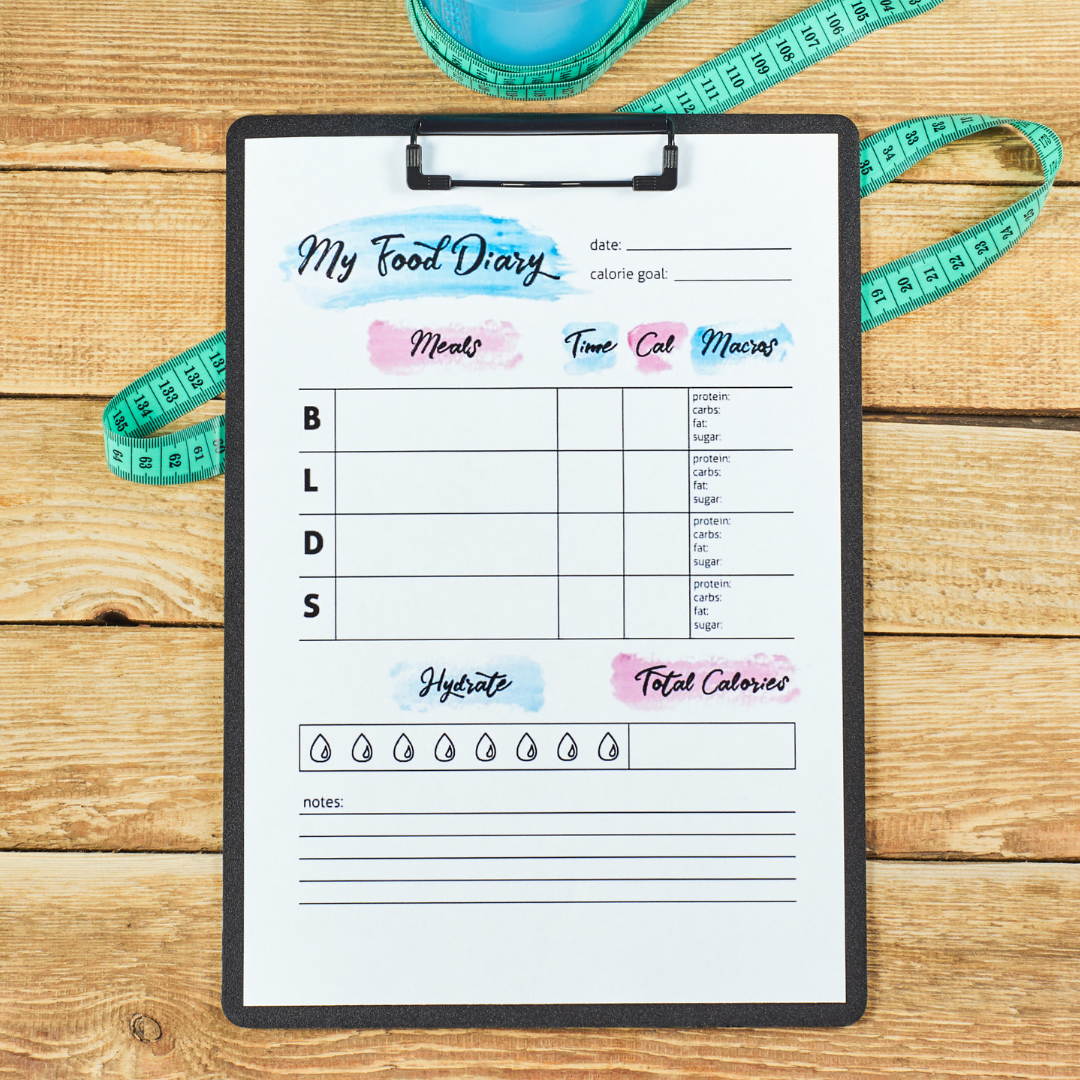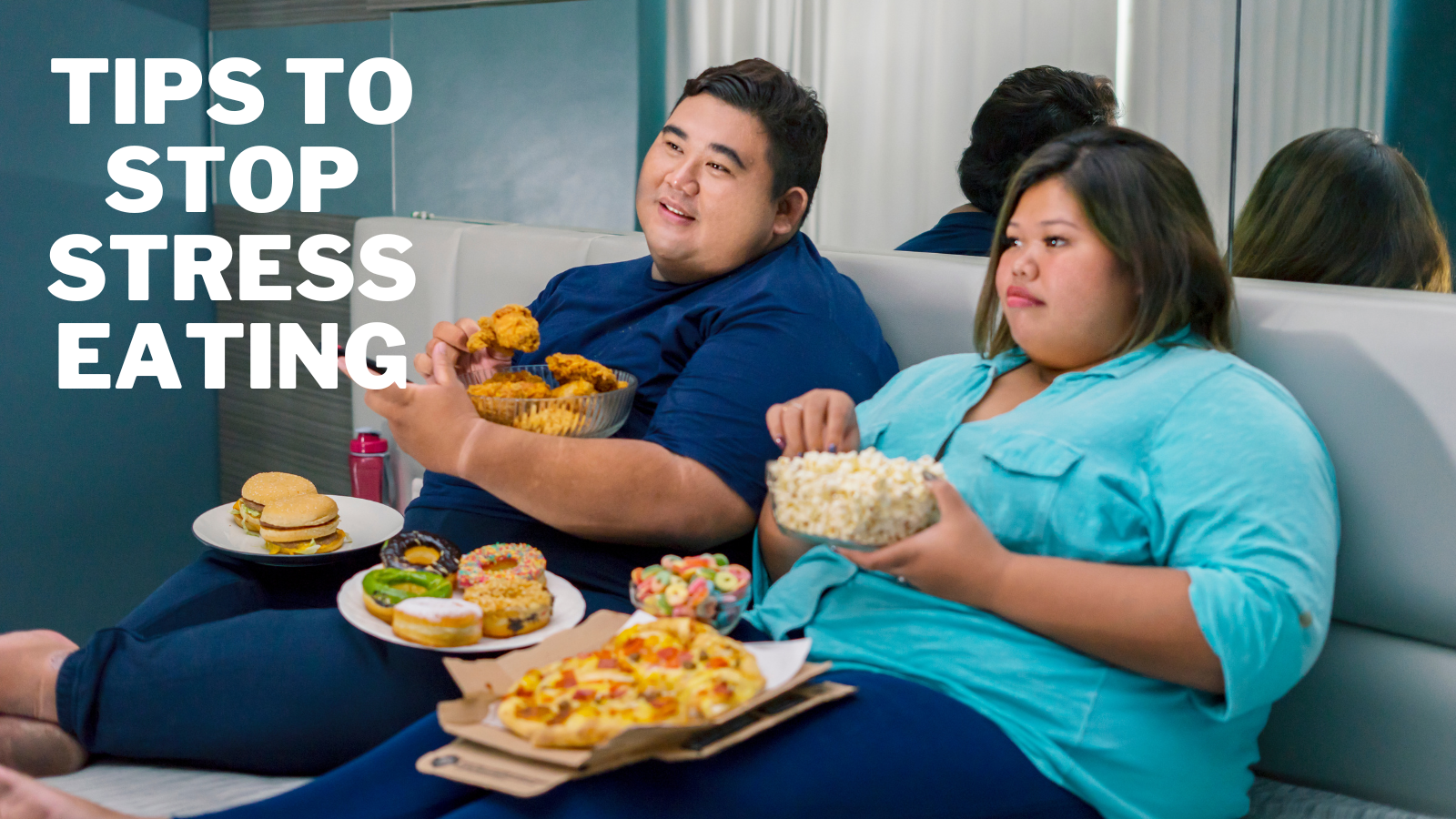Best Tips To Stop Stress Eating
Stress eating, also known as emotional eating, is a common problem. It's easy to turn to food to cope with stress. This can lead to overeating and unhealthy habits.
If you're struggling with stress eating, you're not alone. There are strategies you can use to help you stop stress eating and develop healthier habits.
In this blog, we'll explore tips and techniques for breaking the cycle of stress eating and improving your relationship with food.
What Is Stress Eating?
Stress eating is a complex issue that affects many people, and various unique aspects of this behaviour are worth exploring. For example, stress eating can be influenced by cultural factors.
In some cultures, food is used to express love and affection, and emotional eaters may have grown up in environments where food was seen as a way of coping with negative emotions.
Certain events or situations can also trigger stress eating. For instance, holidays, social gatherings, or family events can trigger stress eating as individuals may feel pressure to eat or indulge in certain foods.
Another unique aspect of stress eating is the way it affects the brain. Studies have shown that stress eating can activate the brain's reward centers, which release feel-good chemicals such as dopamine.
This can create a cycle of overeating, where emotional eaters seek high-calorie foods to satisfy their cravings and feel better.

16 Tips To Stop Stress Eating
Stress eating, or emotional eating, is a common coping mechanism for many people. When we feel stressed, anxious, or overwhelmed, we often turn to food as a source of comfort.
Unfortunately, stress eating can lead to unhealthy eating habits and weight gain. This blog post offers tips on how to stop eating stress and develop healthier coping mechanisms.
1. Identify Your Triggers
Stress eating is a common coping mechanism for many people, and it can be difficult to break the habit. One effective way to start overcoming stress eating is to identify your triggers.
Triggers can differ for everyone, but they often include situations or emotions that make you feel anxious, overwhelmed, or unhappy.
Some common triggers for stress eating include work stress, relationship problems, boredom, loneliness, and anxiety. For example, you may reach for a snack when stressed about a work deadline or turn to food for comfort when feeling lonely.
By becoming aware of your triggers, you can develop alternative strategies for coping with difficult emotions or situations.
If work stress triggers you, for example, you should take short breaks throughout the day to stretch, meditate, or walk. If you're bored or lonely, consider calling a friend or engaging in a hobby you enjoy.

2. Practice Mindfulness
A component of mindfulness practice is being completely present and involved in the present moment. It is a powerful tool for managing stress and anxiety and can effectively reduce stress eating.
To practice mindfulness, find a quiet and comfortable place to sit or lie down. Take a few deep breaths and focus on your body's sensations.
Notice how the air feels as it enters and leaves your lungs, and feel your body's weight against the surface you're sitting or lying on.
As you breathe deeply, please pay attention to your thoughts and emotions, but try not to judge or react to them. Observe them, and let them pass by like clouds in the sky.
If your thoughts stray, kindly return them to your breathing and the current moment. You can become more adept at managing your emotions without resorting to food by engaging in mindfulness practices.
Instead of automatically reaching for a snack when you're feeling stressed or anxious, you can take a few minutes to practice mindfulness and regain a sense of calm and control.

3. Keep A Food Diary
Keeping a food diary is a simple but effective way to become more aware of your eating habits and identify patterns of stress eating. In a food diary, you write down everything you eat and drink, the time, and your emotions.
Recording your food intake and emotions can help you see how they are related. For example, you may notice that you tend to reach for snacks when stressed or anxious or eat more when bored or lonely.
Keeping a food diary can also help you identify healthier coping mechanisms. Instead of turning to food when you're feeling stressed or anxious, taking a walk or talking to a friend is a more effective way to manage your emotions.

4. Get Enough Sleep
Getting enough sleep is important for overall health and well-being and can help control stress eating. Lack of sleep causes your body to create more cortisol and other stress chemicals, which increase your appetite and increase the likelihood that you will overeat.
Research has shown that people who don't get enough sleep are more likely to consume high-calorie, high-fat foods and have a harder time resisting cravings. In contrast, getting enough sleep can help reduce stress and promote healthier eating habits.
To get the most out of your sleep, aim for 7-8 hours each night. You can improve your sleep quality by adopting a soothing bedtime routine and maintaining a regular sleep schedule.
5. Spend Time In Nature
Spending time in nature has positively affected mental and physical health. Being outdoors and surrounded by natural scenery can help to reduce stress levels and improve mood.
This is because exposure to nature can promote relaxation and help reduce feelings of anxiety and depression. Walking in a park or gardening is one way to spend more time in nature.
Outdoor activities can clear your mind and allow you to focus on the present moment. They can also provide light exercise and fresh air, which can improve overall physical health.

6. Avoid Restrictive Diets
Restrictive diets, which involve severe limitations on certain foods or macronutrients, can negatively affect physical and mental health.
While these diets may initially lead to weight loss, they often result in feelings of deprivation and can trigger overeating or binge eating behaviours.
Instead of following a strict diet, focusing on making small, sustainable changes to your eating habits may be more helpful.
This could include incorporating more fruits and vegetables into your meals, choosing lean protein sources, and reducing your intake of processed and sugary foods.
By making gradual changes, you can improve your overall health and well-being without feeling deprived or overwhelmed.
7. Practice Deep Breathing
Deep breathing is a simple yet powerful method for reducing tension and promoting relaxation. Focusing on your breath and taking slow, deep breaths can activate the body's relaxation response and calm the mind.
This can help to reduce feelings of stress, anxiety, and tension. To practice deep breathing, find a quiet and comfortable place to sit or lie down.
After taking a few deep breaths through your nose, exhale slowly through your mouth to fill your lungs with air. Focus on your breath and try to make each inhale and exhale as deep and slow as possible.
You may notice a sense of calm and relaxation as you practice deep breathing. This is because deep breathing can slow down the heart rate, lower blood pressure, and decrease muscle tension, all of which are physical symptoms of stress and anxiety.

8. Exercise Regularly
Regular exercise is an essential component of a healthy lifestyle. It has numerous benefits for physical and mental health.
Exercise can help improve cardiovascular health, strengthen bones and muscles, and reduce the risk of chronic diseases such as obesity, diabetes, and heart disease.
With its physical benefits, exercise can also positively impact mental health. It is well-known that exercise can help reduce stress and anxiety, boost mood, and improve overall cognitive function. It can also promote better sleep and provide a sense of accomplishment and self-confidence.
When incorporating exercise into your routine, it's important to find an activity you enjoy that fits your schedule. This can include walking, jogging, cycling, swimming, or participating in group fitness classes.
The recommended amount of exercise is at least 30 minutes of moderate-intensity activity most days of the week, but any amount of physical activity is better than none.
9. Find Alternative Coping Mechanisms
Stress is a normal part of life, but it's important to find healthy coping methods. Turning to food for comfort can lead to unhealthy eating habits and weight gain.
Instead of relying on food, many alternative coping mechanisms can help you manage stress and improve your overall well-being.
Physical activity is one of the best ways to alleviate stress. Endorphins are feel-good chemicals released during exercise and can help elevate mood and lessen stress. This could be as simple as walking around the block or participating in a fitness class at your local gym.
Other stress-relieving activities include talking with a friend or loved one, practicing relaxation techniques such as deep breathing or meditation, or engaging in a creative hobby such as painting or writing.
Taking a break from technology and spending time outdoors in nature can also help reduce stress and promote feelings of calm and relaxation.
10. Practice Self-Compassion
Practicing self-compassion is an important aspect of breaking the cycle of stress eating. It involves treating yourself with kindness, understanding, and acceptance, especially during difficult times.
When making healthier choices, remember that change takes time and effort. Instead of getting frustrated or discouraged when things don't go as planned, approach the situation with self-compassion.
This means acknowledging your feelings and experiences without judgment and recognizing that setbacks are a normal part of the process.
Self-compassion also involves treating yourself as you would a close friend or loved one. This can include offering encouragement, taking time for self-care, and practicing mindfulness and relaxation techniques to reduce stress and anxiety.
Create a Profitable Holistic Business That Transforms Lives
🌿 Discover inspiring holistic business ideas that blend nature, wellness, and purpose.
Learn how passionate nature lovers are building income streams while helping others live more balanced, mindful lives.
Read Profitable Holistic Business Ideas That Transform Lives
11. Plan Your Meals
Planning your meals is essential to maintaining a healthy lifestyle. By spending some time each week planning your meals and snacks, you can ensure you eat a balanced, nutritious diet that meets your needs.
By avoiding impromptu grocery store trips or takeaways, meal planning can also help you save time and money. To start with meal planning, consider creating a menu for the week ahead.
Think about the meals you would like to eat and make a list of the ingredients you will need. Be sure to include plenty of fruits, vegetables, whole grains, and lean proteins in your meal plan, as these foods provide essential nutrients that your body needs to function properly.
When planning your meals, vary your choices to keep things interesting. Consider experimenting with new recipes or trying different fruits and vegetables to add variety to your diet.
Also, prepare larger batches of meals and freeze portions for later use. Remember to include healthy snacks in your meal plan as well.
Snacks can help keep you energized throughout the day and prevent overeating at mealtimes. Some healthy snack options include fresh fruit, nuts and seeds, yogurt, and raw vegetables with hummus or other dips.
12. Limit Your Exposure To Stress
Stress is a natural part of life, but it can adversely affect our physical and mental health when left unchecked. While it may not be possible to avoid stress completely, there are steps individuals can take to limit their exposure to stressors and promote overall well-being.
One way to limit exposure to stress is to identify the sources of stress in one's life and take steps to address them. This may involve delegating tasks at work or setting boundaries with difficult people to reduce interpersonal conflict.
It could also mean prioritizing self-care activities like exercise, yoga, or meditation to promote relaxation and reduce stress.
Another way to limit exposure to stress is to practice good time management skills. This might involve breaking tasks down into smaller, more manageable pieces or setting realistic goals for oneself.
By managing time effectively, individuals can reduce overwhelming feelings and improve their ability to handle stress. It is also important to remember that everyone responds to stress differently.
What may be stressful for one person may not be stressful for another. Therefore, it is important to identify one's triggers and take steps to manage stress accordingly.
13. Use Positive Affirmations
Positive affirmations are statements that are repeated to oneself to promote positive thinking and self-talk. They can build self-esteem, reduce stress, and promote a positive outlook on life.
By repeating positive affirmations, individuals can shift their focus away from negative thoughts and self-doubt and instead focus on their strengths and abilities.
Positive affirmations can be tailored to address specific challenges or areas of concern, such as self-esteem, weight management, or stress management. For example, someone struggling with emotional eating may repeat affirmations such as “I am in control of my eating habits,” or “I choose to nourish my body with healthy foods.”
14. Practice Self-Care
Self-care is the practice of caring for oneself, both physically and emotionally, to maintain overall health and well-being.
It involves prioritizing activities that promote relaxation, reduce stress, and enhance positive self-image. Self-care can help individuals reduce stress levels and improve their mood, significantly impacting their overall health.
Some examples of self-care activities include taking a relaxing bath, reading a book, going for a walk in nature, spending time with friends and loved ones, practicing yoga or meditation, listening to music, getting a massage, or indulging in a favorite hobby. The key is to identify activities that make you feel good and to prioritize them in your daily routine.
15. Get Support From A Group
Getting help from a group effectively manages stress eating and improves overall health and well-being. Joining a support group or working with a therapist can provide individuals with a safe space to share their experiences, receive emotional support, and gain new insights into their behaviour.
Support groups can be especially helpful for individuals who feel isolated or alone in their struggles with stress eating. Individuals can feel validated and understood by connecting with others going through similar challenges, promoting self-acceptance and reducing shame and guilt.
Therapists can also be a valuable resource for individuals struggling with stress eating. They can provide individualized support and guidance to help individuals identify the underlying causes of their behaviour, develop coping strategies, and learn new ways to manage stress and emotions.
16. Avoid Skipping Meals
Skipping meals can disrupt your body's natural hunger and fullness cues, leading to overeating and unhealthy food choices later in the day. To avoid this, it's important to eat regular meals throughout the day.
Aim to have three balanced meals a day that include a variety of nutrient-dense foods, such as vegetables, fruits, lean proteins, and whole grains.
Also, ensure that you include healthy sources of fats, such as nuts, seeds, and olive oil. These foods will give your body the energy and nutrients it needs to function properly.
In addition to regular meals, it's a good idea to have healthy snacks between meals to keep your blood sugar stable and prevent overeating.
Choose snacks that are nutrient-dense and low in calories, such as a piece of fruit, a handful of nuts, or some raw veggies with hummus.
Remember, it's important to listen to your body's hunger and fullness cues and eat when you're hungry, even if it means having a small meal or snack.
By eating regular meals and healthy snacks, you'll keep your body fueled and prevent the urge to overeat or stress eat later in the day.

Conclusion
Stress eating is common and can have negative health consequences. Fortunately, many tips and strategies can reduce stress and prevent stress eating.
By practicing mindful eating, getting regular exercise, practicing stress-relieving techniques, and seeking professional help, individuals can effectively manage stress and promote overall well-being.
I trust you enjoyed this article on the Best Tips To Stop Stress Eating. Please stay tuned for more inspiring guides, helpful tips, and ideas to help you live closer to nature every day.
Take care!
— JeannetteZ🌿
💬 Your Opinion Is Important To Me
Do you have thoughts, ideas, or questions? I’d love to hear from you. Please leave your comments below or email me directly at Jeannette@Close-To-Nature.org.
📚 More Nature-Inspired Reads
Explore more ways to connect with nature, nurture your pets, and live in harmony with the world around you 🌿







